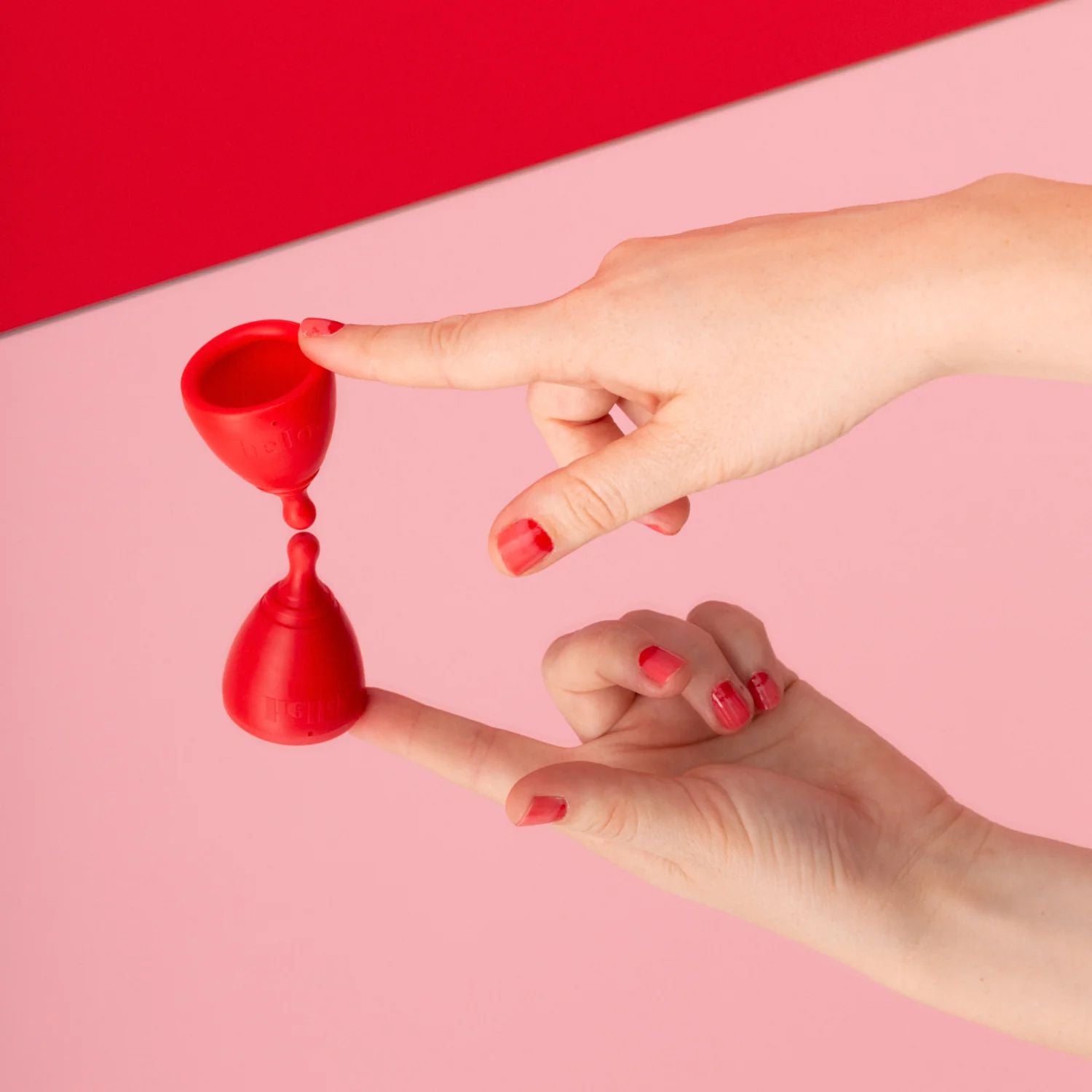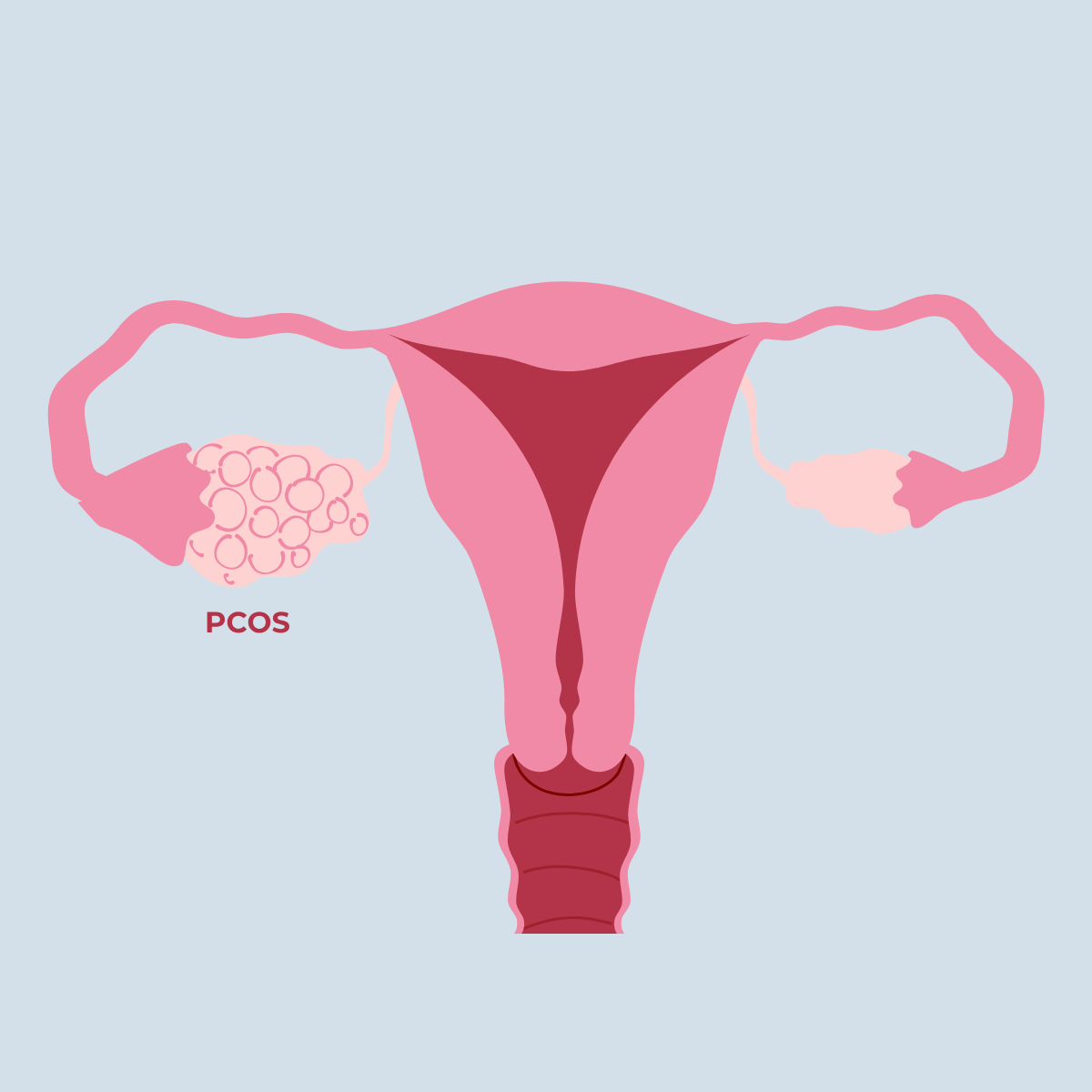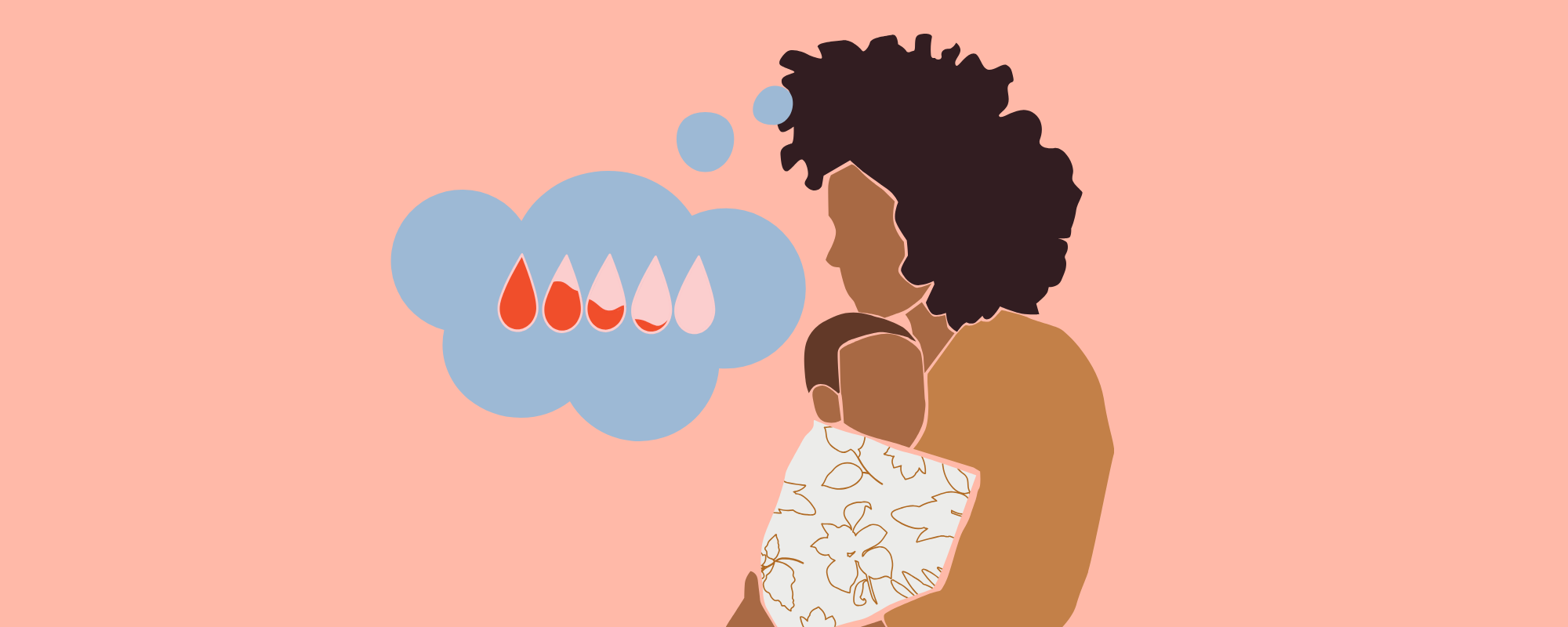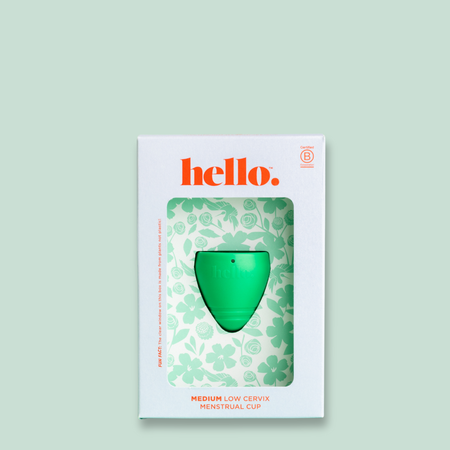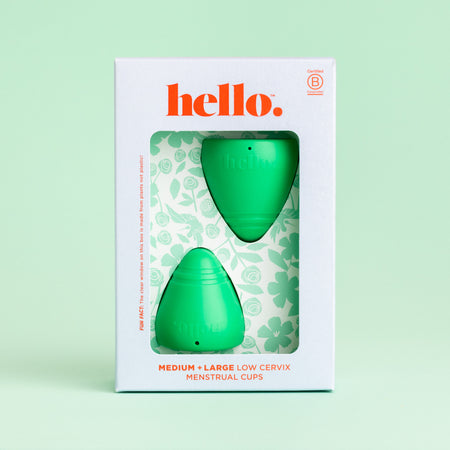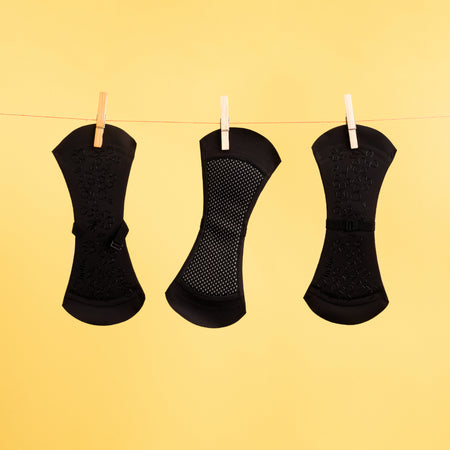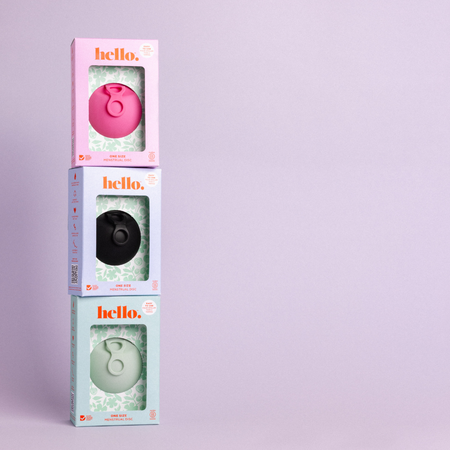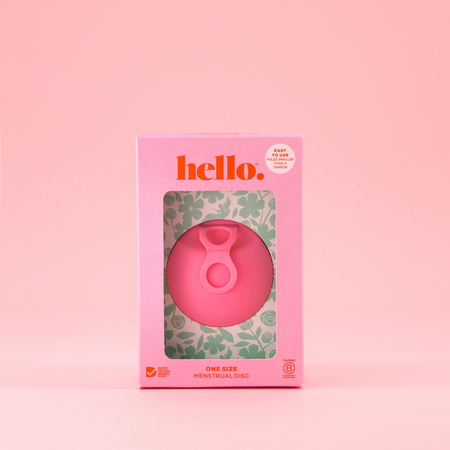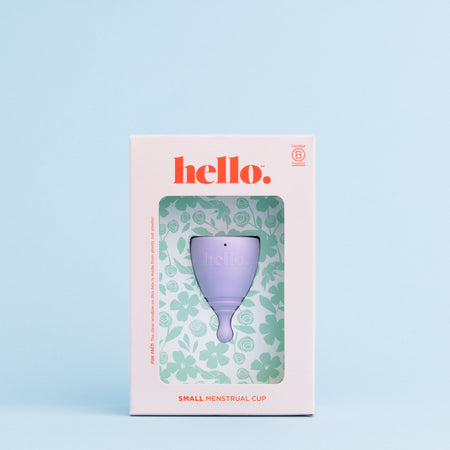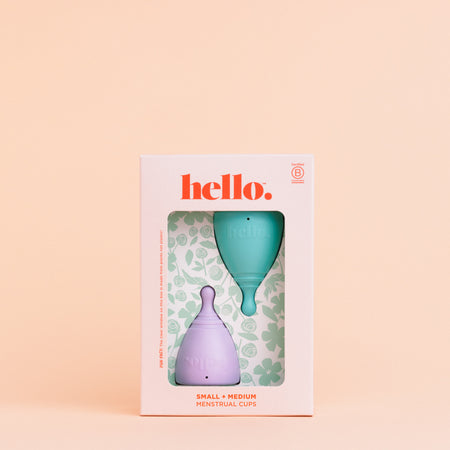The silver lining to a period.
Yep that’s right, I’m sure as women we’ve all felt that a monthly bleed was inconvenient & annoying, but hear me out. Your period is so much more than a monthly bleed; it is giving you valuable information about your health.
The colour, consistency, pain, length & emotions that arise are all indicators of your hormonal balance.
A fabulous way to take note of your period is by using a Hello Cup. We can literally see the amount, consistency & colour using a cup as opposed to pads & tampons.
Let's talk periods….
Your period shouldn’t leave you in the fetal position on the couch. It should really show up unannounced without pain or feeling depleted.
Sure, any woman can experience the odd irregular cycle, slightly more ‘crampy’ than normal period, or a minor mood fluctuation in the latter couple of weeks of her cycle – however, experiencing a regular problem and/or discomfort, though common, is most definitely not normal and therefore should be assessed by a health professional so it can be resolved.
Female reproductive cycle issues can come in a range of shapes and sizes, some of the most common seen clinically are listed below:
- PMS: symptoms of fluid retention, breast tenderness, acne, anxiety, depression and food cravings occurring in the two weeks before menstruation.
- Polycystic Ovarian Syndrome (PCOS): either absent or irregular menstrual cycles, and excess androgens (male hormones). Diagnosed clinically by the presence of excessive acne, androgenic alopecia, or hirsutism (hair in a male pattern distribution); or chemically, by high serum levels of total, bioavailable, or free testosterone and then polycystic ovaries. *highlight that ultrasound is not necessary in diagnosis
- Fibroids: benign growths within the uterine wall, commonly resulting in heavy & painful periods.
- Endometriosis: tissue that normally lines the uterus grows elsewhere (outside the uterus), resulting in heavy & painful periods, pain during other times in the month and potentially infertility.
-
Adenomyosis: tissue that normally lines the uterus grows into the inner layers of the uterus, resulting in heavy & painful periods and infertility.
What’s your period telling you?
Colour & Consistency
A bright red colour - as in fire-engine-truck red - is no need to sound the sirens. Bright red blood often means that you are simply at the beginning of your cycle. The fresher the blood is, the more red it’s going to be.
Brownish blood is basically just older blood that’s been in your uterus for a lot longer than fresh blood. It’s had a chance to oxidize, so it’s not as bright. It is quite normal to notice this towards the end of your period.
Light pink can indicate low estrogen, especially if you only have 1-2 days of light bleeding.
Dark red to purple is often seen in very heavy periods, alongside blood clots tell me that there maybe too much estrogen.
Grey discharge can indicate bacterial vaginosis infection – see your GP.
Period Pain
When your uterus contracts to shed its lining during your period, it releases hormone-like substances called prostaglandins—and the more of those that your body releases, the more painful your cramps will be.
High prostaglandin levels can be caused by imbalances in oestrogen or progesterone, the major hormones that control the menstrual cycle.
If they are incredibly painful, they could be a symptom of endometriosis, which occurs when cells that normally line the inside of your uterus grow outside of it, too.
Period poop – it’s a thing. For the record, a change in the consistency, frequency, and smell of your poop during your period is very common.
Blame prostaglandins. Too many prostoglandings = diarrhoea. Too little = constipation.
We often see bowel pain & IBS symptoms with endometriosis. We have some fabulous probiotics that help down regulate the inflammation in the bowel.
Heavy Menstrual Bleeding
Your body typically balances progesterone and estrogen, the two hormones that play the biggest roles in menstruation.
However, too much estrogen can lead to a thickened uterine lining. This can cause heavy bleeding as the lining is eliminated during your period.
An underactive thyroid gland (hypothyroid) may also cause heavy or irregular menstrual bleeding.
A heavy period is defined as excessive menstrual blood loss that interferes with a woman's physical, social or emotional quality of life
- Losing more than 80ml of blood
- Passing lumps of blood (or clots) that are larger than a 50 cent coin
- Bleeding so much that you have to change sanitary products every hour (this is when a hello cup is so wonderful)
- Bleeding through clothing & changing sanitary products through the night
- Bleeding that lasts more than eight days.
Heavy periods may also lead to complications like iron deficiency anemia and associated conditions, including severe pain and menstrual cramps.
Irregular Periods
There are a few reasons why you may not be having a regular cycle:
- Stress! When you’re stressed, your body produces more cortisol, i.e., the stress hormone. Elevated cortisol levels can block the signals that lead to the release of an egg that then leads to your period—so your period may come late, or you may skip it altogether. Stress can be physically (eg: too much exercise) or psychologically (eg: big work load or too much coffee)
- PCOS – Too much insulin or insulin resistance increases testosterone and other androgens and impairs ovulation. This can make you have long cycles or your period can go missing all together.
When our bodies make regular, normal-length menstrual cycles with normal egg release (ovulation) and luteal phase length’s we are healthy in body, mind and soul.
Illness, not eating enough for our energy needs, angst or abuse is the common causes of adaptive disturbances of cycles/ovulation.
Plus, normal-length, ovulatory cycles provide a healthy balance of estrogen and progesterone that together promotes current fertility and bone balance as well protecting future heart, breast and whole health.
Thus ovulatory cycles are both an indicator and a creator of good health.
Dr. Jerilynn C. Prior
It is my mission to educate women about their own body so that they can identify the difference between common & normal. Heavy painful periods, acne, anxiety or discomfort due to a hormone imbalance in not part of being a woman, these a simply messages from your body telling you something needs to change.
Gina Rose xx
***
Disclaimer: This blog post is for educational purposes only. It is not designed to diagnose, treat or cure. We are all unique. For your individual health concerns, it is important to discuss these with a relevant health professional.
***
- https://pubmed.ncbi.nlm.nih.gov/25263312/
- https://pubmed.ncbi.nlm.nih.gov/20216473/
- https://pubmed.ncbi.nlm.nih.gov/6326245/
- https://pubmed.ncbi.nlm.nih.gov/956337/
- https://pubmed.ncbi.nlm.nih.gov/28778332/
- https://www.ncbi.nlm.nih.gov/pmc/articles/PMC4496224/
- https://pubmed.ncbi.nlm.nih.gov/18537837/
- https://pubmed.ncbi.nlm.nih.gov/10093753/
- https://www.ncbi.nlm.nih.gov/pmc/articles/PMC1253702/
- https://www.ncbi.nlm.nih.gov/pmc/articles/PMC3552825/
- https://pubmed.ncbi.nlm.nih.gov/22543078/
- https://link.springer.com/article/10.1186/s13065-019-0539-1
- https://www.ncbi.nlm.nih.gov/pmc/articles/PMC3901893/
- https://www.sciencedirect.com/science/article/pii/S221462372030096X
